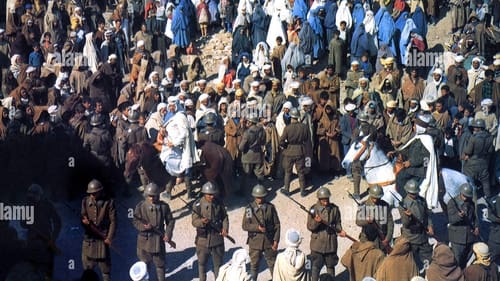
Kojak
On the outskirts of Algiers, Algeria. the arrival of the satellite dishes governs the lives of the inhabitants. Dissatisfied with their lives, they think of themselves as the heroes of American soap opera and movies, so JR, Sue Ellen, Rambo, Kojak, Spock and others take possession of bodies and minds, with many typical American culture elements. These heroes mix in a beautiful funny mess, with tradition and modernism, Islam and television, reality and fiction.


The uncle
A watershed film, Omar Gatlato held a mirror up to Algerian male culture and the mirror cracked. The title refers to the expression "gatlato al-rujula," or, roughly, "machismo killed him" and the film's mordant insights into male posturing and alienation in Algerian society animate this bit of folk wisdom. In mock documentary style, a young man recounts with wry commentary a typical day in his life in the Bab el-Oued quarter of Algiers, while the camera playfully shows a different story. In following Omar and his friends in their pursuit of happiness, the film examines with shrewd humor the gang values of urban youth; their passion for popular culture (soccer, "Hindoo" movies, Rai concerts), their hidden fear of women, and their social insecurity in an environment where they are marginalized.

Second Assistant Director
The beginings of the Algerian Revolution as seen through the eyes of a peasant.

The beginings of the Algerian Revolution as seen through the eyes of a peasant.

Assistant Director
Néfissa, a student in Algiers, returns to her southern village in the summer. Her father wants her to marry the mayor but she wants to continue her studies.

Néfissa, a student in Algiers, returns to her southern village in the summer. Her father wants her to marry the mayor but she wants to continue her studies.

Monsieur Vachonne
A revolutionary militant is killed during the repression of May 1945. His son, who is unaware of the real circumstances of the murder, ends up being attached to the ideal for which his father died.

Assistant Director
A revolutionary militant is killed during the repression of May 1945. His son, who is unaware of the real circumstances of the murder, ends up being attached to the ideal for which his father died.

Directed by Ahmed Bedjaoui et al.

The Algerian War is seen through the eyes of a group of Algerian freedom-fighters who have been captured and incarcerated in French-run military prisons both in France and Algeria. In addition to attempts at escape, this prison drama also includes propaganda and brainwashing attempts by the French and scenes of torture. In what is possibly the most horrible torture of all, the inmates are forced to listen to broadcast speeches by General Charles de Gaulle -- speeches which illustrate the changing relations between the French and the Algerians.







